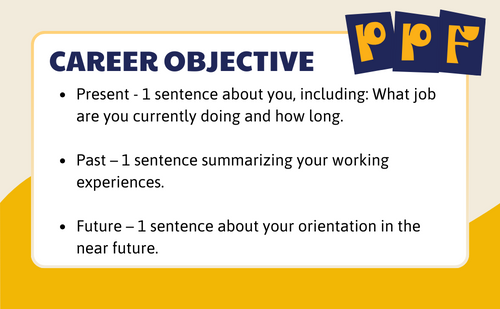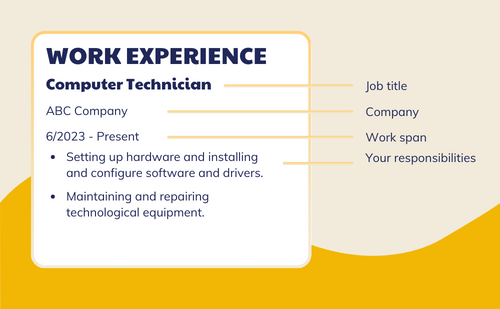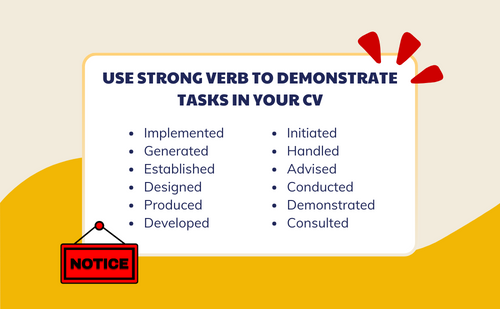HOW TO WRITE A CV IN ENGLISH
|
If you want to find jobs abroad or jobs at foreign-invested companies, you need to prepare a CV in English. Normally, an English CV (Curriculum Vitae) usually has the following items: Contact Your contact information section should includes the following items:
Career objective:
You can apply the P-P-F formula below when writing your career objective:
Example: An enthusiastic marketer who specializes in consumer studies and digital marketing. With three years of experience in market research, content creation, and content strategy development in the retail and banking sectors. Currently looking for opportunities to expand my Digital Marketing knowledge and obtain management skills within a global retail organization. Work experience:
Your work experiences should be presented in the order of time, starting with your current job and writing down your older jobs below. Employers will consider whether your most recent job is related to the job you are applying for or not. If your work experience is not correlated to the vacancy, it may show no value to the employers. Your work experience should be presented in the following order:
- Job title (Position name) - Company/ City - Country: If you work for big organizations/ companies such as Coca-Cola, Amazon, etc. You should place the company’s name at the top in order to take advantage of these brand values. - Work span (Starting month/year - Ending month/year) - Describe shortly about the company: 1-2 lines, not required. - Responsibilities: Demonstrate jobs that you undertake during working time.
For your most recent job, you should list in detail the tasks you have to undertake so that the employer can consider your ability to work and the relevance between your old job and the new one.
If you don't have much experience in writing “Responsibilities”, here are a few tips for you: + Use the Job Requirement of the current job you are doing: You should save the JD of the job you are undertaking and use this to update your CV. + Refer online JD: Use the keywords “Your current job + CV template” or “Your current job + CV sample” to find similar CV templates for this position. Note that you should read carefully and choose those that are closest to your work. - Achievements at work: This is an additional section and is not required to be recorded. Note: You can use strong verbs to demonstrate tasks in your CV. Below are some strong verbs you can refer to:
Education and qualifications
You should state briefly and clearly about your education level, including academic degrees and related certificates. In fact, many companies care about educational qualifications. This is one of the factors that are used for assessing your suitability for the vacancy. In this section, please provide information about your school, major, and GPA. If you have an average GPA, you can omit this part and leave only the school name and your major. Don't forget to list the certifications you've achieved. Skills
Focus on showing your hard skills and you should only select skills that are most related to the career you are applying for. You can also demonstrate the skills you have in your “Work experiences” section, that allow the employer to see more clearly how you use that skill practically. Don't write too many skills or write skills that you are not really good at, be honest with what you have. Achievements
Here is the information section where you will mention your achievements. Achievements can be academic-related achievements such as: Scientific research awards, excellent student competition awards, etc. It can also be awards that the company has given to you. This section is not required but will become your competitive advantage over your competitors.
Here are a few suggested sample achievements for you:
NOTES:
+ With your current job: V-ing or V-infinitive. For example: Lead/ Leading project ABC. + With work experiences in the past: Past conjugation, V-ed.
|



